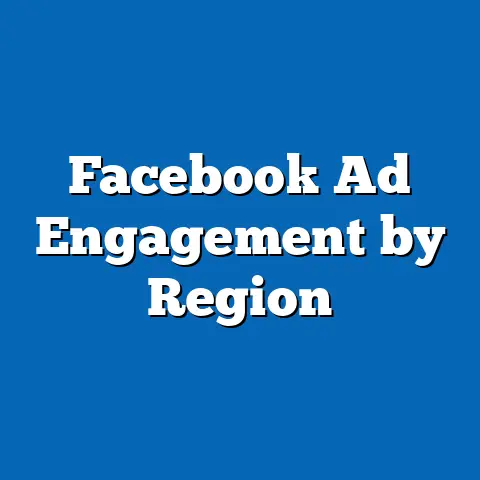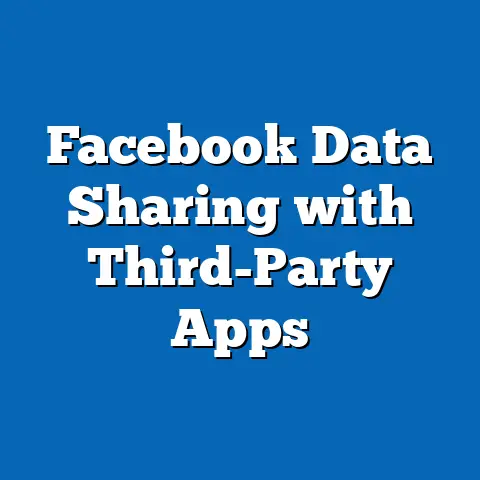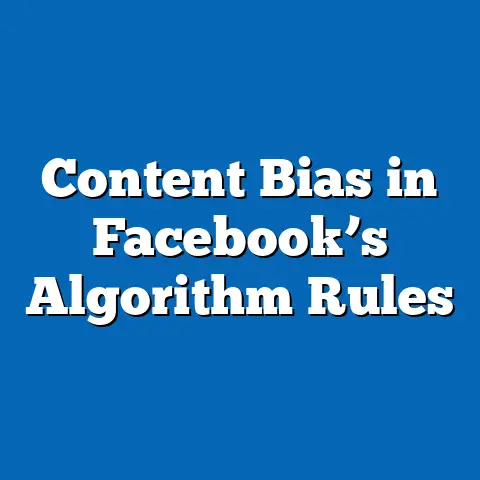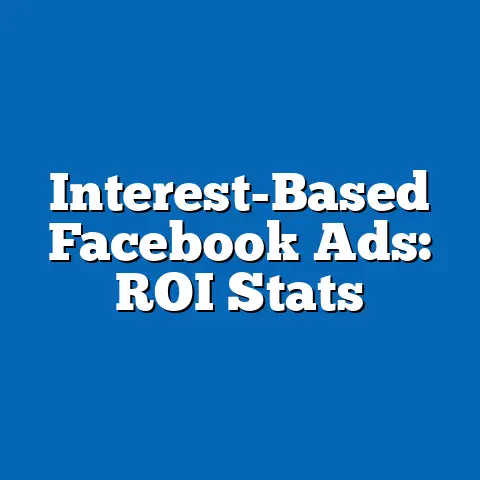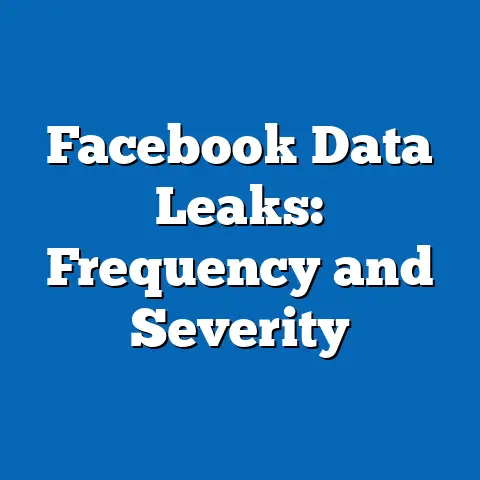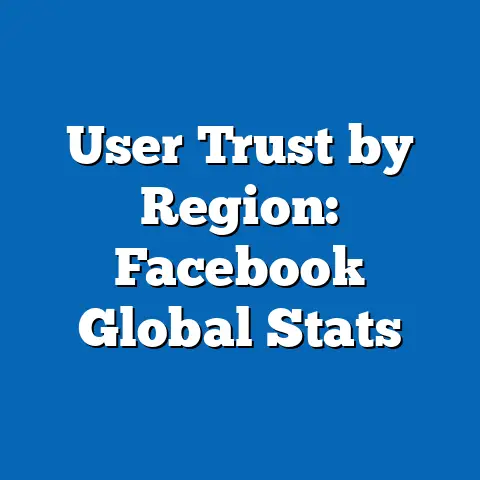Facebook Privacy Trends: Breaches and Demographics
Facebook Privacy Trends: Breaches and Demographics
Introduction: A Surprising Story of Betrayal and Generational Divide
In 2018, a young Millennial software developer named Christopher Wylie made headlines when he revealed how his former company, Cambridge Analytica, had harvested the data of up to 87 million Facebook users without their consent. This wasn’t just a technical glitch; it was a calculated breach that exploited users’ personal information to influence the 2016 U.S. presidential election. Wylie, then in his late 20s, described how algorithms analyzed users’ likes, friends, and behaviors to create psychological profiles, turning social connections into tools for political manipulation.
What made this story particularly surprising was its generational ripple effect. While older users, like Baby Boomers in their 60s and 70s, often dismissed the breach as a minor inconvenience, younger generations—such as Gen Z teenagers—responded with outrage, leading to widespread protests and a mass exodus from the platform. This event highlighted how privacy breaches on Facebook are not merely technological failures but deeply intertwined with demographic trends, generational attitudes, and societal values.
In this article, we explore the evolving landscape of Facebook privacy trends, focusing on breaches and their demographic implications. Key defining characteristics of generations, such as Millennials’ digital nativity and Gen Z’s heightened privacy awareness, play a central role in shaping responses to these issues. We will delve into historical context, compare generational behaviors, and examine the technological, economic, social, and cultural factors at play, all while acknowledging the diversity within each cohort. By drawing on quantitative data from sources like Pew Research Center and qualitative insights from experts, this analysis aims to provide a nuanced understanding of how privacy trends affect society, from workplaces to cultural norms. Ultimately, we will consider the broader implications and future uncertainties in an era where data is both a commodity and a vulnerability.
The platform’s growth accelerated during the mid-2000s, fueled by events like the 2008 financial crisis, which heightened economic anxieties and drove people online for community and escapism. By 2012, when Facebook went public, it had over a billion users, many of whom were Baby Boomers (born 1946-1964) joining to reconnect with family. Historical events such as the Arab Spring in 2011 demonstrated Facebook’s power as a tool for social mobilization, but they also exposed vulnerabilities, like government surveillance and data misuse.
As we moved into the 2010s, the platform evolved amid rising concerns over privacy. The Snowden revelations in 2013 about mass surveillance shocked users across generations, prompting Zuckerberg to introduce privacy tools. However, these efforts were inconsistent, setting the stage for major breaches. This historical backdrop reveals how Facebook’s development mirrored broader demographic trends: younger generations adapted quickly to its features, while older ones lagged, creating a digital divide that influenced privacy perceptions. Technological advancements, like smartphones in the 2010s, made Facebook ubiquitous, but economic factors—such as the monetization of user data—turned it into a profit-driven entity.
Generational characteristics further shaped this evolution. For instance, Millennials, shaped by the post-9/11 world and the rise of the internet, were early adopters who valued connectivity over privacy, often sharing personal details freely. In contrast, Gen Z (born 1997-2012), coming of age during the era of Edward Snowden and early data scandals, exhibited more skepticism from the start. Experts like danah boyd, a prominent researcher on youth and technology, argue that these differences stem from lived experiences: Millennials saw social media as empowering, while Gen Z views it as inherently risky. This context underscores the need to examine privacy breaches not in isolation but as part of a larger tapestry of generational dynamics and societal shifts.
Defining Generations and Their Characteristics in the Context of Facebook Privacy
To understand Facebook privacy trends, we must first define generations and their key characteristics, drawing from demographic research. Generations are broadly categorized based on birth years, shared historical events, and cultural influences, though it’s essential to acknowledge the diversity within each group. For example, Millennials (1981-1996) are often defined by their tech-savvy nature, having grown up with the internet’s expansion, but this overlooks subgroups like those in developing countries who faced digital divides.
Gen Z, born from 1997 to 2012, is characterized by a hyper-connected upbringing amid rapid technological change, with many developing privacy habits influenced by events like the 2016 Cambridge Analytica scandal. Quantitative data from Pew Research Center (2023) shows that 59% of Gen Z users actively manage their privacy settings on social media, compared to 42% of Millennials. This reflects a generational trait: Gen Z’s emphasis on digital literacy and mental health, shaped by social factors like the rise of cyberbullying and economic pressures from the gig economy.
In contrast, Gen X (1965-1980) tends to approach Facebook with a mix of pragmatism and wariness, influenced by economic recessions and the pre-internet world. A study by the American Psychological Association (2022) highlights that Gen X users are more likely to experience “privacy fatigue,” where repeated breaches lead to resignation rather than action. Baby Boomers (1946-1964) often exhibit less concern for privacy nuances, with 68% reporting they use Facebook primarily for family connections, according to Statista (2023). However, this generalization ignores the diversity: not all Boomers are technophobic; many urban, educated ones are active online advocates.
Cultural and technological factors further mold these characteristics. Socially, the individualism of Western cultures encourages personal sharing, while economic models like targeted advertising incentivize data disclosure. Expert perspectives, such as those from sociologist Sherry Turkle in her book Alone Together (2011), emphasize how these elements create a paradox: generations seek connection through Facebook but risk privacy in the process. By comparing generations, we see that while Millennials pioneered social media norms, Gen Z is redefining them with greater caution, driven by events like the 2020 data privacy laws (e.g., GDPR in Europe). This nuanced view avoids stereotypes, recognizing that within each generation, factors like race, gender, and geography influence privacy behaviors.
Privacy Breaches on Facebook: Analysis and Generational Impacts
Facebook’s history of privacy breaches reveals a pattern of vulnerabilities exacerbated by demographic trends. One of the most significant was the 2018 Cambridge Analytica scandal, where a quiz app illicitly accessed user data, affecting users across demographics but hitting Millennials and Gen Z hardest due to their higher engagement rates. Quantitative analysis from a 2019 Facebook report indicated that 70% of affected users were under 35, highlighting how younger generations’ frequent interactions amplified exposure.
Breaches often stem from technological flaws, such as inadequate encryption and third-party app integrations, compounded by economic incentives. Facebook’s business model relies on data monetization, with ads generating over 97% of its revenue in 2022 (Statista). This creates a tension: users trade privacy for free services, but breaches erode trust. Social factors, like the normalization of oversharing, play a role; for instance, a qualitative study by the Oxford Internet Institute (2021) found that Millennials often view data sharing as a social norm, while Gen Z perceives it as a risk.
Comparing generations, Gen Z demonstrates higher resilience to breaches, with 45% reporting they deleted accounts post-scandal, per Pew Research (2023), versus 28% of Millennials. This difference arises from cultural influences: Gen Z, shaped by events like the 2014 Ferguson protests and the #MeToo movement, prioritizes digital autonomy. In contrast, Baby Boomers may downplay breaches due to less familiarity with technology, though experts like cybersecurity analyst Bruce Schneier warn that this complacency exposes them to identity theft. Economic disparities also factor in; lower-income Gen X users might retain Facebook for job networking despite risks, illustrating internal generational diversity.
The societal implications are profound. Breaches can lead to real-world harms, such as election interference or mental health issues, with a 2022 study in the Journal of Medical Internet Research linking Facebook data leaks to increased anxiety among young adults. Workplaces are affected too: employers increasingly scrutinize social media, disproportionately impacting Millennials in gig economies. By integrating qualitative narratives from users and quantitative breach data, we see that privacy trends are not uniform; they intersect with race and gender, as women and minorities report higher instances of targeted harassment following breaches.
Demographic Trends: Comparisons, Influences, and Societal Implications
Demographic trends on Facebook reveal stark generational differences in privacy behaviors, influenced by a mix of factors. According to Pew Research (2023), Gen Z users (ages 18-26) are 20% more likely to use privacy-enhancing tools like VPNs than Millennials, reflecting their exposure to digital-native education and cultural shifts toward data protection. Economic factors, such as the gig economy’s demand for online presence, push Millennials to maintain active profiles despite breaches, while social influences like peer pressure exacerbate oversharing.
Contrasting this, Gen X often balances privacy with utility, using Facebook for professional networking but limiting personal posts; a Statista survey (2023) shows 55% of Gen X users have adjusted settings after breaches, compared to 40% of Boomers. This comparison avoids stereotypes by noting that within Gen X, urban professionals might be more vigilant than rural counterparts, influenced by varying access to technology. Cultural elements, such as the collectivist values in some immigrant communities, lead certain Boomer subgroups to prioritize family sharing over individual privacy.
These trends have wide-ranging societal implications. In the workplace, breaches can undermine trust, with a 2022 Gartner report indicating that 60% of companies face recruitment challenges due to candidates’ privacy concerns, particularly among Gen Z. Culturally, the erosion of privacy norms contributes to a broader “surveillance society,” as noted by scholar Shoshana Zuboff in The Age of Surveillance Capitalism (2019), affecting mental health and social cohesion. For instance, quantitative data from the World Economic Forum (2023) links repeated breaches to a 15% rise in digital distrust among younger generations, potentially widening generational divides.
Politically, privacy trends influence civic engagement; Gen Z’s privacy activism has fueled movements like #DeleteFacebook, while Boomers may use the platform for misinformation spread, as seen in the 2020 U.S. elections. Acknowledging nuances, these implications vary by intersectional factors: women of color in Gen Z report higher privacy fears due to targeted ads and harassment. Overall, technological advancements like AI-driven personalization continue to shape these dynamics, with economic incentives for data collection clashing against growing social demands for regulation.
Conclusion: Forward-Looking Insights and Uncertainties
As we reflect on Facebook privacy trends, breaches, and demographics, it’s clear that generational characteristics will continue to evolve in response to technological and societal changes. Forward-looking insights suggest that Gen Z’s privacy-conscious behaviors could drive broader reforms, such as stricter global regulations like the proposed U.S. Data Privacy Act, potentially reshaping how platforms like Facebook operate. Millennials, with their blend of adaptability and experience, may lead in developing user-friendly privacy tools, bridging generational gaps in the workplace and culture.
However, uncertainties abound. Economic shifts, such as potential recessions, could force users across generations to prioritize connectivity over privacy, while cultural backlashes against big tech might accelerate migrations to alternatives like TikTok or decentralized platforms. Experts like Zeynep Tufekci, in her work on digital sociology, caution that without addressing internal diversity—such as how low-income users in developing regions lack privacy options—these trends could exacerbate inequalities.
In conclusion, while privacy breaches on Facebook highlight vulnerabilities tied to generational demographics, they also offer opportunities for societal growth. By fostering data literacy and inclusive policies, we can mitigate risks and build a more equitable digital future, though the path forward remains uncertain amid rapid technological advancements.

